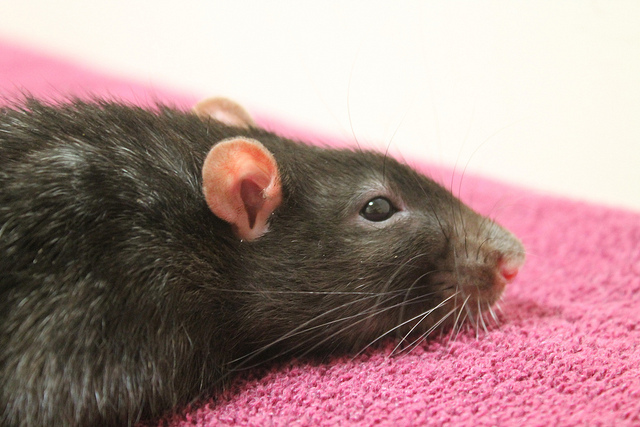Overview of Urinary Tract Infections In Rats
A urinary tract infection, or the swelling and infection of the bladder or urethra, is a relatively minor health issue in rats. It still warrants treatment with antibiotics or other medications to bring the rat back into good health. A rodent UTI can be broken down into two different names, or it can be a full urinary tract infection.

Sleeping rat has its eyes closed. Sometimes, rats will sleep with their eyes open; but it isn’t very common. Photo Credit: Starsandspirals via Flickr
– Defining Cystitis In Rats –
Cystitis is the veterinary term for bladder infections in rats. The bladder can be infected by itself, or in conjunction with the urethra. It is much more common to see them occur together.
– Defining Urethritis In Rats –
When the urethra is infected, the veterinary terminology is “urethritis”. Rats tend to get a case of urethritis shortly before it becomes a full blown urinary tract infection, or UTI. This is because the bacteria enter through the urethra then travel upwards into the bladder.
What Causes Urinary Tract Infections In Pet Rats?
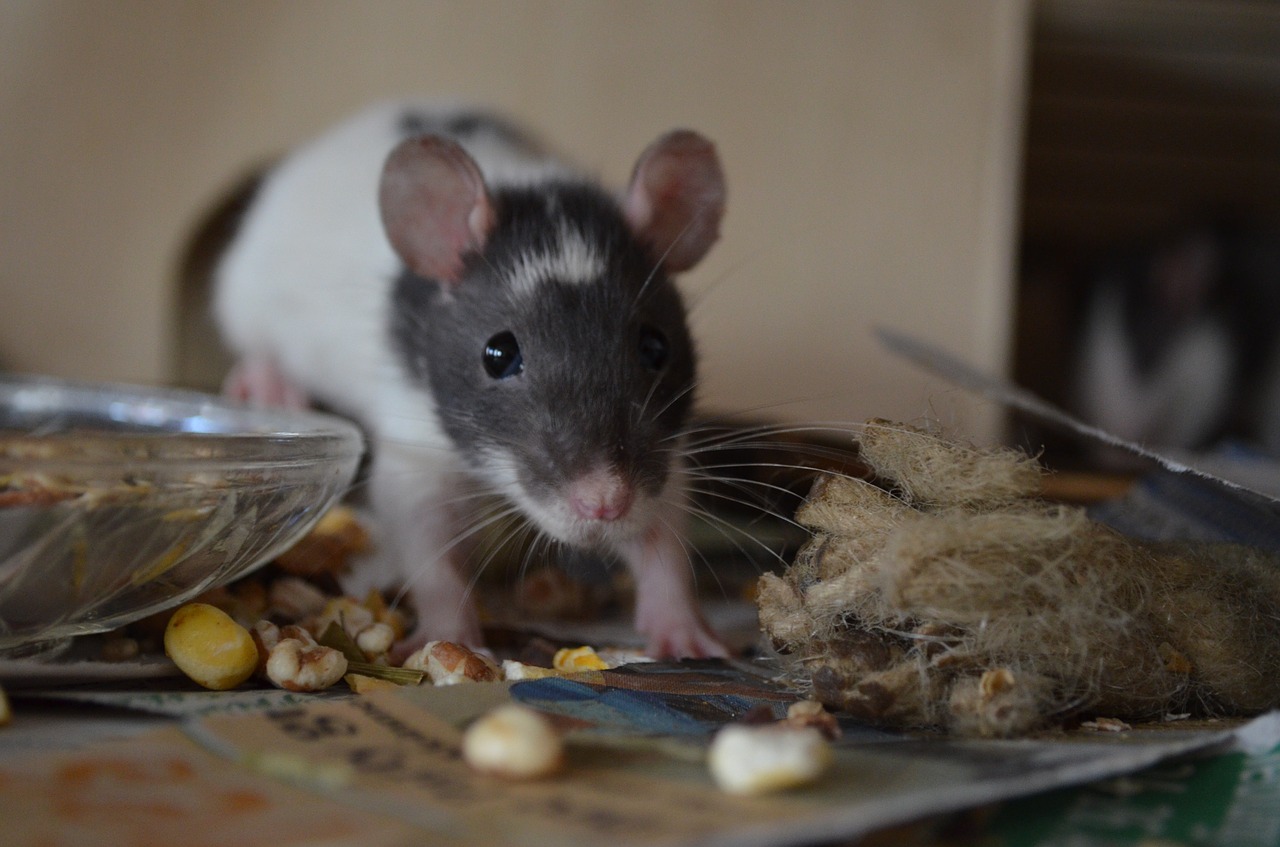
Starting young is the best way to get rats accustomed to baths. They become more at ease with it if it is seen as a normal life event.
Urinary tract infections are usually due to one of three causes when it comes to fancy rats. They will either boil down to bacterial infestations, fungal infections, or parasitic invasions. Blockages are very dangerous causes, and are important to touch base with as well. More often than not, the cause is found to be bacterial. Rats are prone to infectious bacteria within their homes, especially if several live together and new cage mates continue to come and go. Treating a UTI depends on what is causing it, which makes a veterinary exam absolutely necessary to keep the rat healthy.
1: Bacterial Urinary Tract Infections
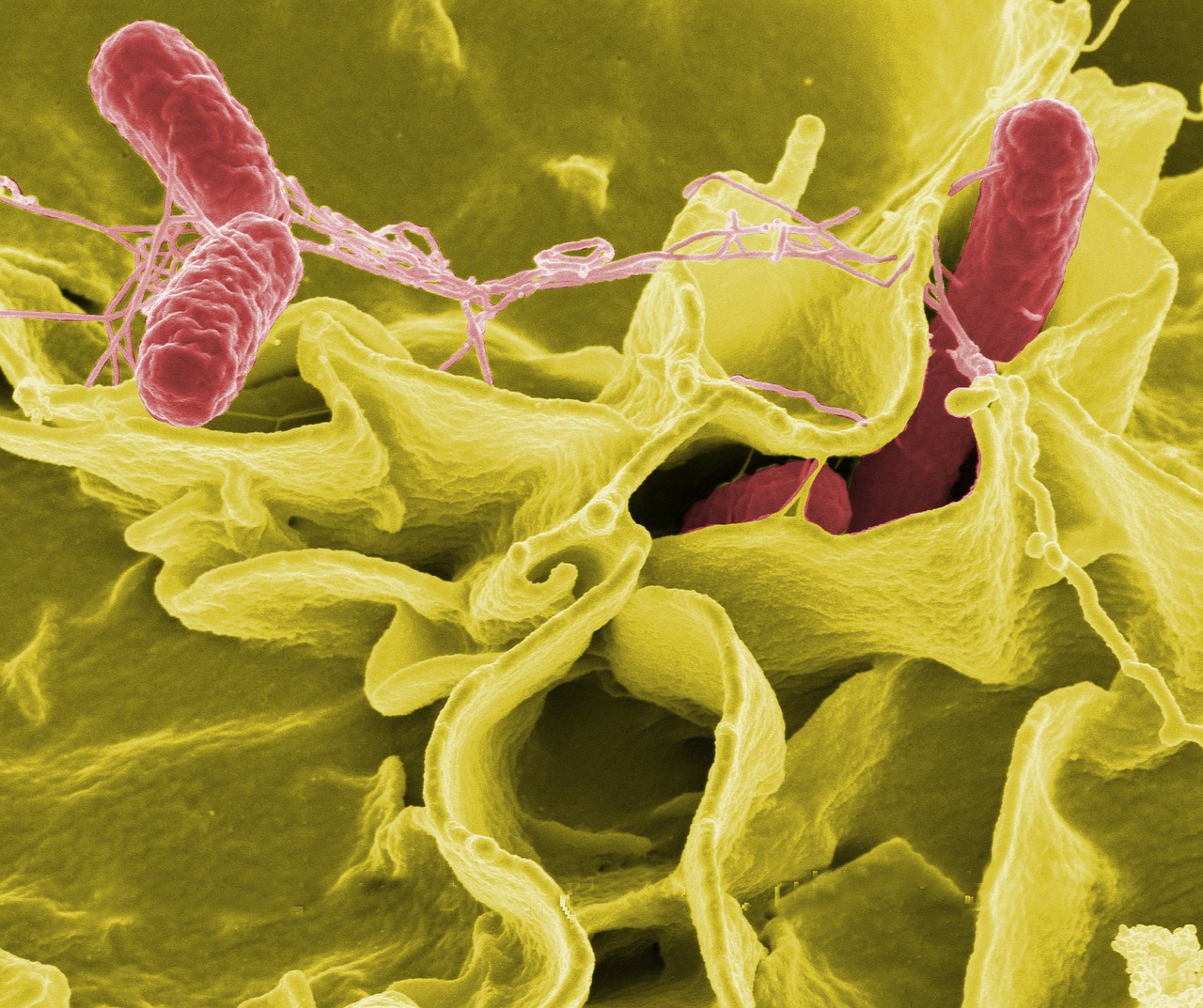 Bacterial urinary tract infections are caused by single cell microorganisms. While every body contains good bacteria, sometimes the good and the bad can get out of natural balance. When this occurs and the bad bacteria begin to colonize out of control, the body becomes ill. In the case of URI’s in rats, it is likely that the PH balance is not as it should be and the rat fell victim to the bacterial colonization. A urinary infection caused by bacteria will mean the owner will have to get one of many antibiotics for the rat pending a bacterial culture to determine which strain the rat has been infected by.
Bacterial urinary tract infections are caused by single cell microorganisms. While every body contains good bacteria, sometimes the good and the bad can get out of natural balance. When this occurs and the bad bacteria begin to colonize out of control, the body becomes ill. In the case of URI’s in rats, it is likely that the PH balance is not as it should be and the rat fell victim to the bacterial colonization. A urinary infection caused by bacteria will mean the owner will have to get one of many antibiotics for the rat pending a bacterial culture to determine which strain the rat has been infected by.
2: Fungal Urinary Tract Infections
 A common cause of fungal urinary tract infections is the growth of Candida yeast. This family of fungus is known for yeast infections and urinary tract infections in rats, even in humans. Sometimes, treatment is not necessary. Instead, there may be an underlying condition the rat is afflicted by that has caused Candida yeast species to grow out of control. When the condition has been found, the rat can be fed some yogurt to assist in regulating yeast levels much more quickly. Yogurt is a wonderful food loaded with probiotics, or good bacteria for the rat’s digestive tract. Correcting underlying health issues usually resolves any Candidiasis and keeps the ratty in check.
A common cause of fungal urinary tract infections is the growth of Candida yeast. This family of fungus is known for yeast infections and urinary tract infections in rats, even in humans. Sometimes, treatment is not necessary. Instead, there may be an underlying condition the rat is afflicted by that has caused Candida yeast species to grow out of control. When the condition has been found, the rat can be fed some yogurt to assist in regulating yeast levels much more quickly. Yogurt is a wonderful food loaded with probiotics, or good bacteria for the rat’s digestive tract. Correcting underlying health issues usually resolves any Candidiasis and keeps the ratty in check.
3: Parasitic Infections Causes Urinary Infection
 Did you know that parasites not only cause a host of their own problems, but can cause secondary issues like bladder infections as well? Parasites are very dangerous for animals and humans alike. Internal urinary parasites are much more common than you might think in pets, because they can be contracted in hundreds of ways. New pets can bring them in, current pets can transmit them, and even the food we eat or bedding we give to our pets can be infested with eggs or larvae of parasitic microorganisms.
Did you know that parasites not only cause a host of their own problems, but can cause secondary issues like bladder infections as well? Parasites are very dangerous for animals and humans alike. Internal urinary parasites are much more common than you might think in pets, because they can be contracted in hundreds of ways. New pets can bring them in, current pets can transmit them, and even the food we eat or bedding we give to our pets can be infested with eggs or larvae of parasitic microorganisms.
Of all of the internal parasites that can infest rats, one of the most important that we mention here is the rat bladder threadworm.
4: Urinary Blockages and Kidney Stones in Male and Female Rats Causing UTI’s
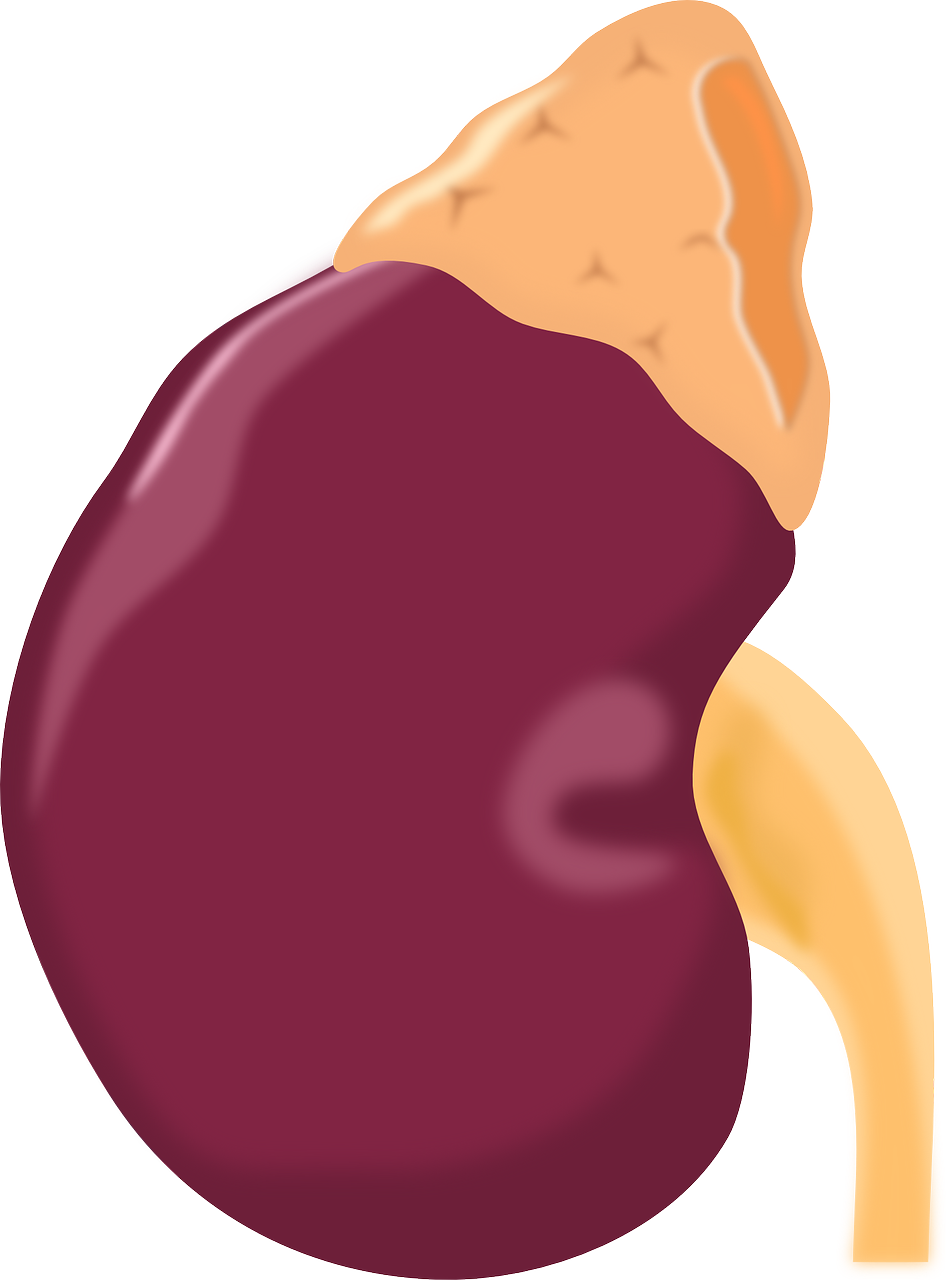 For the most part, blockages are fairly rare. You do not see them often in rats, but it is always a possibility. Blockages can be caused by congenital abnormalities or defects in the urinary tract’s development. However, kidney stones are usually the culprit. As many humans have already found out the hard way, kidney stones are extremely painful experiences that no one should have to experience; especially our pets! Treating urinary blockages and kidney stones can be a lot more difficult than a simple bacterial infection that was caught early.
For the most part, blockages are fairly rare. You do not see them often in rats, but it is always a possibility. Blockages can be caused by congenital abnormalities or defects in the urinary tract’s development. However, kidney stones are usually the culprit. As many humans have already found out the hard way, kidney stones are extremely painful experiences that no one should have to experience; especially our pets! Treating urinary blockages and kidney stones can be a lot more difficult than a simple bacterial infection that was caught early.
Diagnosing UTI’s and Observing the Symptoms in Rats
Seeking out symptoms and diagnosing the suspected cause is the only way to get a surefire diagnosis that takes care of the urinary tract infection, blockage, or abnormality. The symptoms are fairly standard, and could be fairly mild for some time.
Symptoms of Urinary Tract, Urethra, Bladder, or Kidney Infection In Rats
 Symptoms of a UTI will almost always include one of the following, but a more severe kidney infection may include even more symptoms. Using these symptoms, any urinary infection may be suspected, warranting a trip to the veterinarian for a round of diagnostics testing.
Symptoms of a UTI will almost always include one of the following, but a more severe kidney infection may include even more symptoms. Using these symptoms, any urinary infection may be suspected, warranting a trip to the veterinarian for a round of diagnostics testing.
- Rat will be seen having odd frequencies of urination. They rat could be seen urinating much more frequently, or he or she may not be urinating enough. UTI’s can be painful, and the infection can make the bladder work harder.
- The perineum may appear wet. It may look like the rat sat in a small puddle. This is actually urine that has soaked the fur.
- The rat’s bladder may feel excessively firm to the touch, or abnormally shaped. This is due to bacterial colonization, a dammed up bladder, or failure to urinate.
- Blood in the urine is a very scary sign, as it demonstrates that the infection has gotten fairly bad. Hematuria could be due to damage in the bladder or the kidneys.
- Urine that seems to be different in color or smell signals issues as well. If the pee seems cloudy, it’s a clear sign that there is a lot of bacteria or yeast floating in the urine. A foul odor is usually in attendance as well, as that is the odor put off by the bacteria during it’s feeding, growth, and reproduction.
How Are Urinary Infections Diagnosed by the Veterinarian?
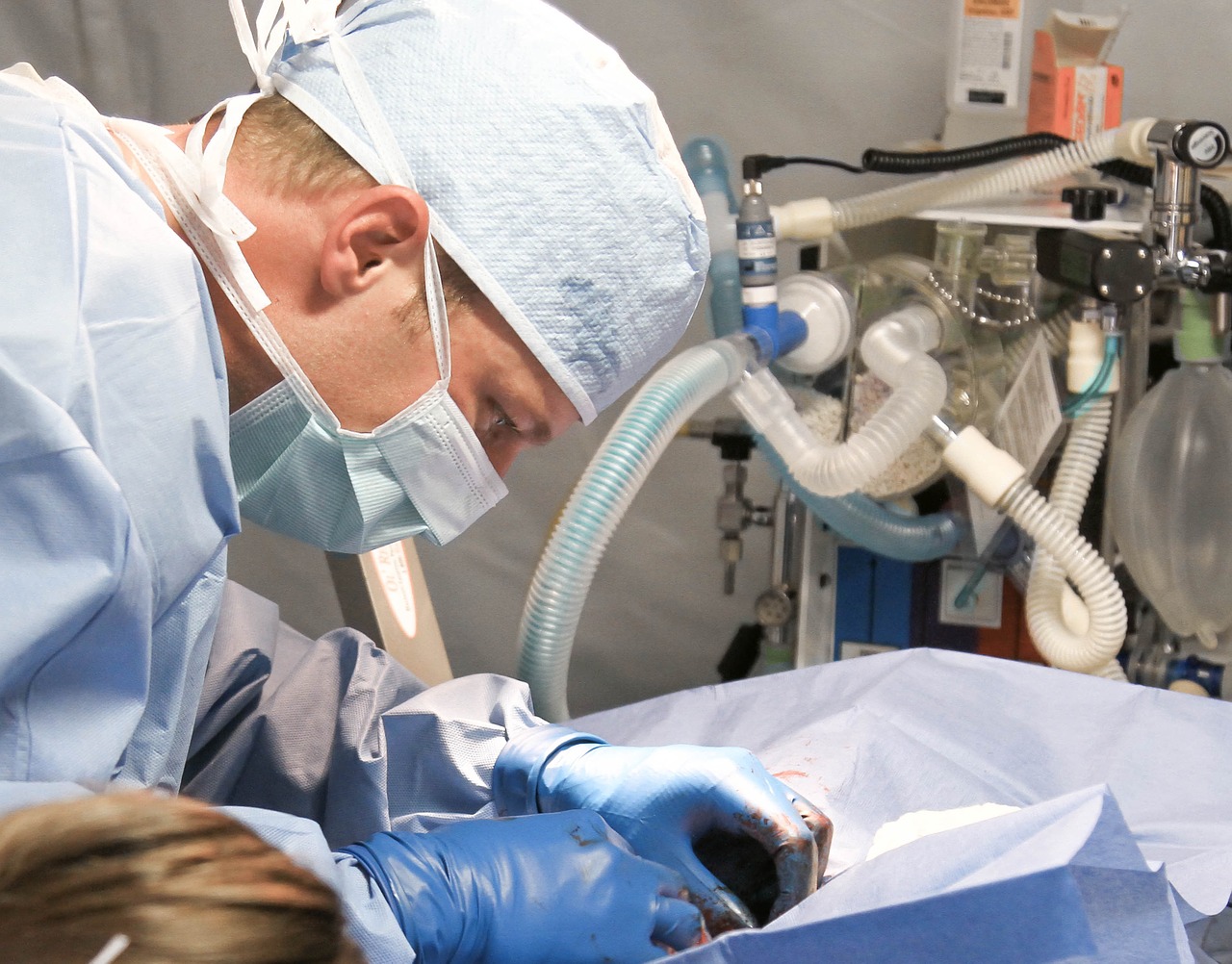 If you have a local exotics vet, an appointment should be made as soon as symptoms are noticed. If you do not already have a trusted vet, I recommend finding one immediately and creating a new appointment for your pet. UTI’s can quickly go from minor infections to kidney infections that shut the body down; meaning a pet could be lost without proper treatment.
If you have a local exotics vet, an appointment should be made as soon as symptoms are noticed. If you do not already have a trusted vet, I recommend finding one immediately and creating a new appointment for your pet. UTI’s can quickly go from minor infections to kidney infections that shut the body down; meaning a pet could be lost without proper treatment.
Family History
Firstly, the veterinarian will look at the history of the rat. If it has had infections before, the veterinarian will start there with his or her diagnostics. Family history (if parents or siblings are owned) may come in handy as well.
Veterinary Physical Exam of the Rat
Next, the vet will perform an exam on the rat to see how symptoms are presenting along with potential causes of the infection. This is important so that the vet can catch any potential blockages early in the appointment in case any emergency surgery is necessary. If there is no blockage found, a sample of urine will be collected.
How the Urine is Tested in the Lab
Once the urine is in the lab it is immediately cultured. Samples are taken and grown in agar, while another sample is viewed immediately under a microscope. This allows the vet or technician to see what types of bacterial or fungal growth is concentrated, while also checking for parasitic larvae and eggs.
